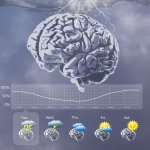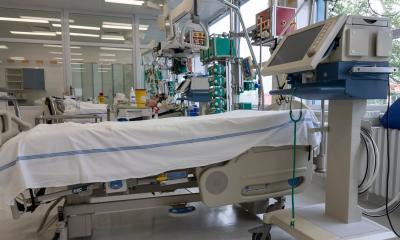News • AI in cardiology
Machine learning accurately predicts cardiac arrest risk
A branch of artificial intelligence (AI), called machine learning, can accurately predict the risk of an out of hospital cardiac arrest--when the heart suddenly stops beating--using a combination of timing and weather data, finds research published online in the journal Heart.
Machine learning is the study of computer algorithms, and based on the idea that systems can learn from data and identify patterns to inform decisions with minimal intervention. The risk of a cardiac arrest was highest on Sundays, Mondays, public holidays and when temperatures dropped sharply within or between days, the findings, which can be accessed here, show. This information could be used as an early warning system for citizens, to lower their risk and improve their chances of survival, and to improve the preparedness of emergency medical services, suggest the researchers.

Image source: Pexels/alleksana
Out of hospital cardiac arrest is common around the world, but is generally associated with low rates of survival. Risk is affected by prevailing weather conditions. But meteorological data are extensive and complex, and machine learning has the potential to pick up associations not identified by conventional one-dimensional statistical approaches, say the Japanese researchers.
To explore this further, they assessed the capacity of machine learning to predict daily out-of-hospital cardiac arrest, using daily weather (temperature, relative humidity, rainfall, snowfall, cloud cover, wind speed and atmospheric pressure readings) and timing (year, season, day of the week, hour of the day, and public holidays) data. Of 1,299,784 cases occurring between 2005 and 2013, machine learning was applied to 525,374, using either weather or timing data, or both (training dataset). The results were then compared with 135,678 cases occurring in 2014–15 to test the accuracy of the model for predicting the number of daily cardiac arrests in other years (testing dataset). And to see how accurate the approach might be at the local level, the researchers carried out a ‘heatmap analysis,’ using another dataset drawn from the location of out of hospital cardiac arrests in Kobe city between January 2016 and December 2018.
The combination of weather and timing data most accurately predicted an out of hospital cardiac arrest in both the training and testing datasets. It predicted that Sundays, Mondays, public holidays, winter, low temperatures and sharp temperature drops within and between days were more strongly associated with cardiac arrest than either the weather or timing data alone.
Recommended article

News • Cloudy, with a chance of seizures
Creating a 'weather forecast' for epilepsy
Patterns of brain activity can be used to forecast seizure risk in epilepsy patients several days in advance, according to a new analysis of data obtained from clinically approved brain implants by neuroscientists at UC San Francisco, the University of Bern and the University of Geneva.
The researchers acknowledge that they didn’t have detailed information on the location of cardiac arrests except in Kobe city, nor did they have any data on pre-existing medical conditions, both of which may have influenced the results. But they suggest: “Our predictive model for daily incidence of [out of hospital cardiac arrest] is widely generalisable for the general population in developed countries, because this study had a large sample size and used comprehensive meteorological data.” They add: “The methods developed in this study serve as an example of a new model for predictive analytics that could be applied to other clinical outcomes of interest related to life-threatening acute cardiovascular disease.” And they conclude: “This predictive model may be useful for preventing [out of hospital cardiac arrest] and improving the prognosis of patients...via a warning system for citizens and [emergency medical services] on high-risk days in the future.”
In a linked editorial, Dr David Foster Gaieski, of Sidney Kimmel Medical College at Thomas Jefferson University, agrees. “Knowing what the weather will most likely be in the coming week can generate ‘cardiovascular emergency warnings’ for people at risk—notifying the elderly and others about upcoming periods of increased danger similar to how weather data are used to notify people of upcoming hazardous road conditions during winter storms,” he explains. “These predictions can be used for resource deployment, scheduling and planning so that emergency medical services systems, emergency department resuscitation resources, and cardiac catheterisation laboratory staff are aware of, and prepared for, the number of expected [cases] during the coming days,” he adds.
Source: BMJ
18.05.2021





